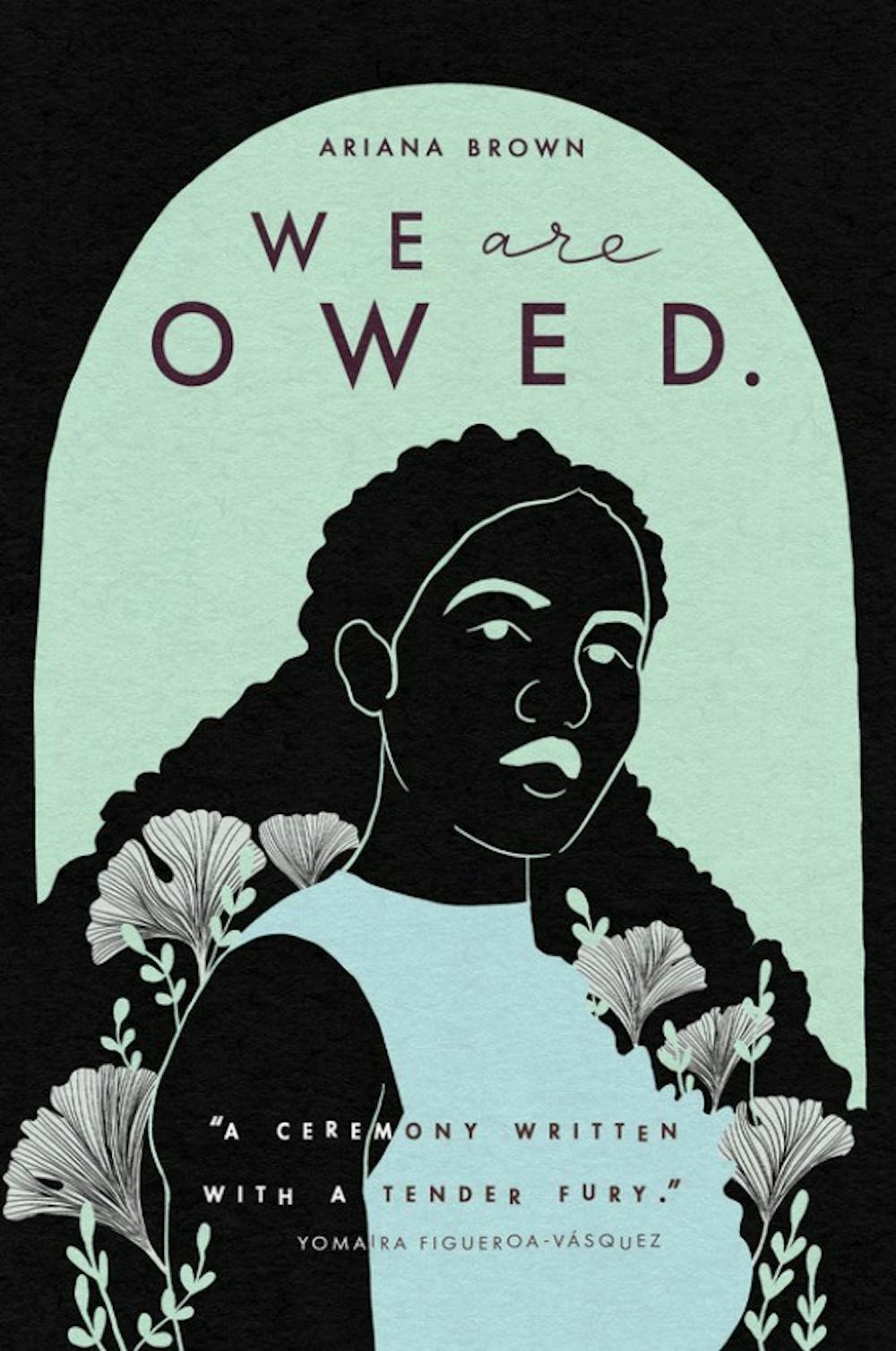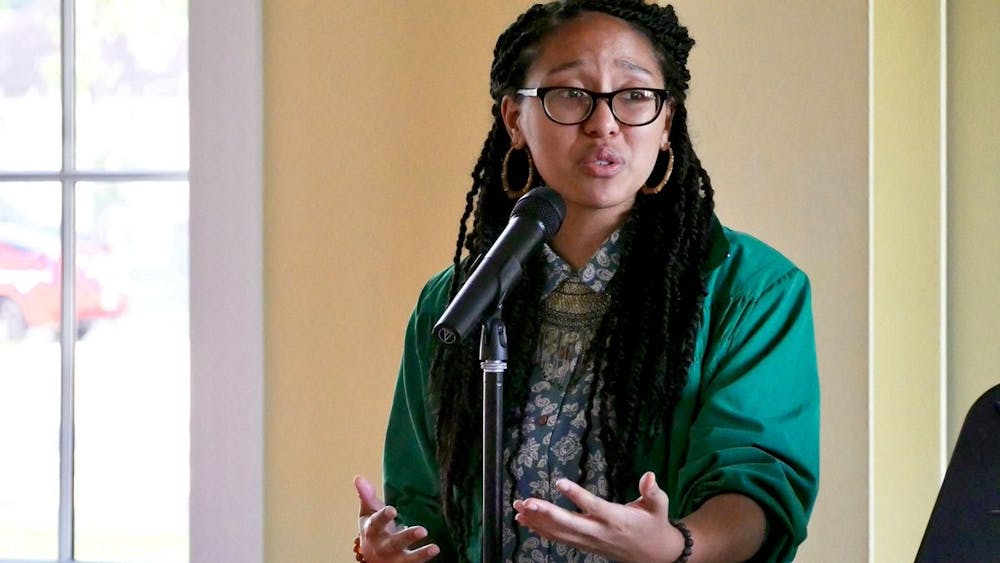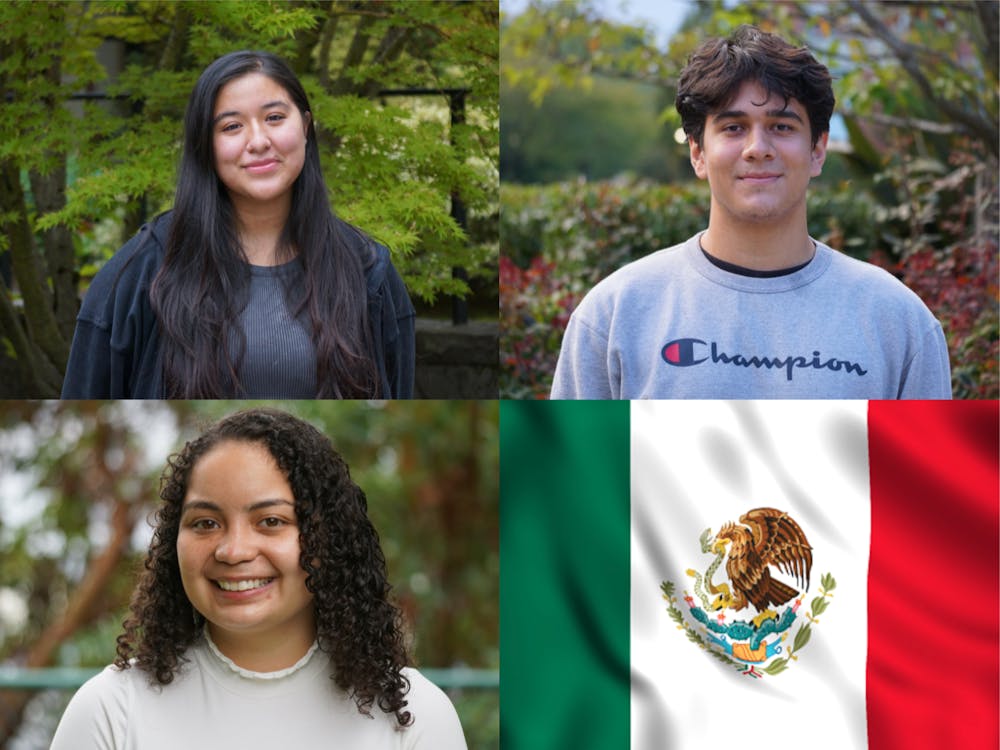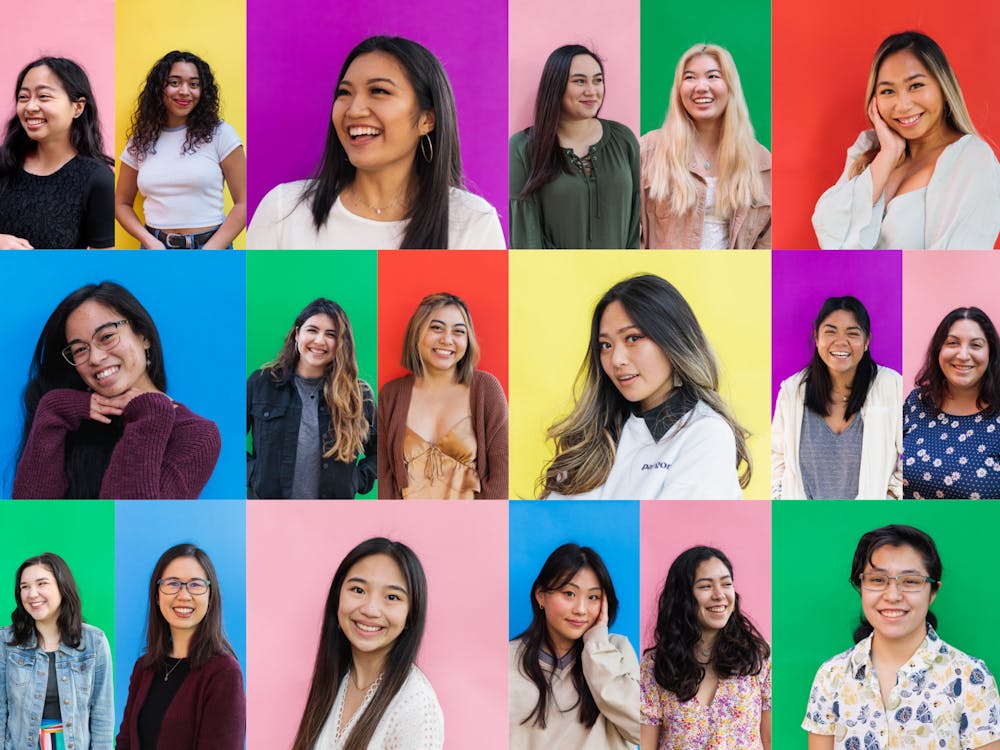In honor of Latinx Heritage month, University of Portland’s Diversity Inclusion Program and Latinx Student Union invited Ariana Brown to perform poetry inspired by her Afro-Latin experiences through Zoom on Friday, Oct. 1.
Brown, who grew up in San Antonio, Texas, was taught to take pride in her Mexican culture growing up.
“I was taught to be very proud of being Mexican-American,” Brown said. “To compete with others to see who could be the most authentic Mexican to shame those who did not measure up, who were not good enough representations of the people we claimed to be.”
She takes her experience of living as an Afro-Mexican American and translates her understanding of what that means into her poetry.

Brown's "We are Owed" is a poetry collection in which Brown explores and questions Black relationality in Mexican and Mexican American spaces.
Photo courtesy arianabrown.com.
Filled with emotion, Brown’s poetry is meant to resonate with those who feel a disconnect from their Latin culture. There’s a divide within the Afro-Latinx community that contributes to the marginalization that many people who identify as Afro-Latinx have felt for generations.
“I began questioning the erasure of blackness in Mexico within Mexicanidad,” Brown said. “The violences enacted against Afro-Mexicans, Afro indigenous people, and enslaved Africans related to my own experiences of loneliness, isolation and anti-Blackness.”
She explores that divide within her identity through her newest book titled, We Are Owed, which took Brown six years to complete. This collection of poems is Brown’s attempt to fully articulate her understanding of how she was taught to view Mexican-American culture and how her Mexican identity has failed to serve her.
Brown’s understanding was that the only way for her to connect with her Mexican identity is to give up her Black heritage and accept the violences against Afro-Mexicans.

That failure is exactly what strengthens her appreciation for the Black side of her identity, which Brown wants to enforce within those who at one point felt the same way that she did.
“Sometimes I wonder if we're doing ourselves and each other a disservice by focusing so much on pride, instead of liberation,” Brown said in her poem, At the End of Borderlands. “I say all the time that I'm proud to be Black. For me, that pride is rooted in an understanding of history.”
In fact, Brown’s inspiration for her recent poetry stems from her discovery of the history of Gaspar Yanga who led an important slave rebellion. During her talk, Brown shared a video that she came across, and then expressed her concerns for the lack of light being shed on Yanga.
“It's really wild to have to rely on YouTube to learn your history because it's been kept from you because there's so little that's been preserved or passed on to you,” Brown said. “I feel very grateful now to know about Yanga, to write poems about him.”
The erasure of history within Afro-Latin culture is exactly why Brown deems it so important to find connections within people who relate to her. For those working towards liberation, Brown offers a final thought on the topic:
“Liberation is not an aesthetic, it's a practice, and so you have to work towards it,” Brown said. “You have to work with many people to understand that it's not about being a hero, you know, not all of us are Gaspar Yanga. … Being okay with being one among many who are working together to make something happen.”
Janea Melido is a reporter for The Beacon. She can be reached at melido24@up.edu.








